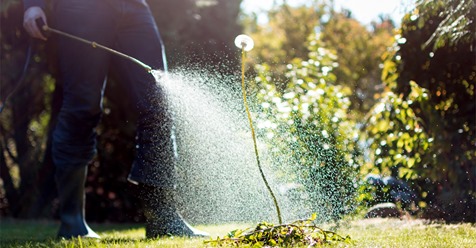
A decade ago, when Kathleen Hallal’s three young sons were battling auto-immune disorders, the Irvine, California, resident realized that powerful herbicides were often being sprayed in the schoolyards, fields, and parks where they spent most of their time.
“I’d see my kids stretch and roll in the grass. Other kids would be digging in the dirt where they had just sprayed Roundup. No one paid attention to the yellow warning signs,” said Hallal, referring to the controversial herbicide that contains glyphosate.
Hallal contacted pediatricians, organic lawn managers, even a retired scientist from the U.S. Environmental Protection Agency (EPA). For over two years, she pushed the school district to ban glyphosate and other synthetic pesticides—and succeeded in 2015. The following year, she formed a group with several other parents and they convinced the entire city of Irvine to ban pesticides in public spaces and switch to organic lawn care. In the following months, activists in nearby cities of San Clemente, Malibu, and Burbank also moved to implement bans.
Today, Hallal’s organization, Non-Toxic Communities, is a model for others around the country hoping to do away with herbicides in public spaces and transition to organic lawn management. And while she says the fight was lonely and arduous for a long time, over the past two years, hundreds of cities, counties, schools, and other entities have followed suit. They include Los Angeles County, the University of California system, Hawaii County, Miami, Tucson, and Seattle. Many places have made these moves amid intense public interest stemming from a flood of litigation against Bayer (formerly Monsanto), the maker of Roundup.
